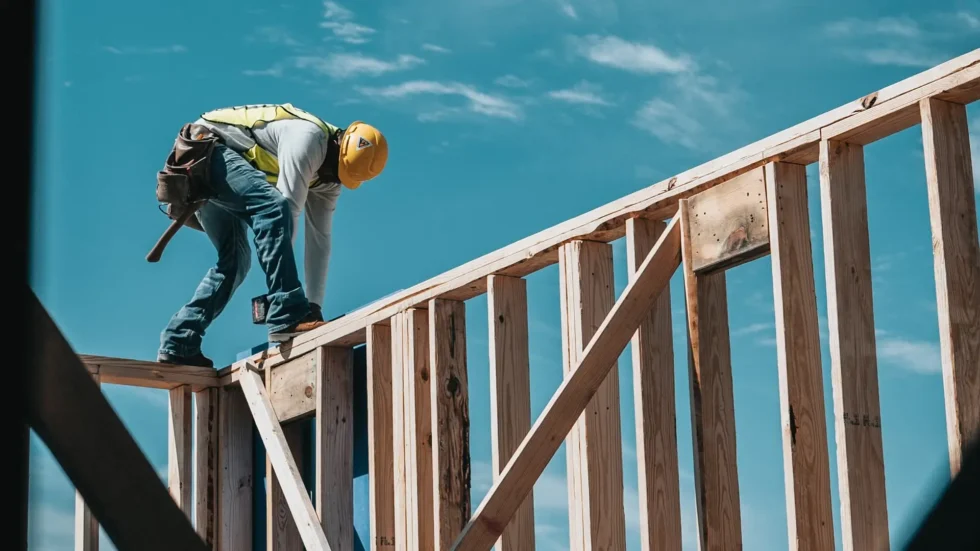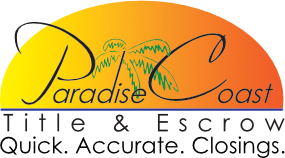Quick Summary
- CDD Defined: A Community Development District (CDD) is a special taxing district in Florida used to finance infrastructure and amenities in new residential communities.
- Impact on Homebuyers: CDD fees are added to your annual property tax bill and can significantly affect your total cost of ownership.
- Why It Matters: Understanding CDD obligations helps you make informed buying decisions — and title insurance ensures you aren’t caught off guard by hidden assessments.

Introduction: Why CDDs Matter for Florida Homebuyers
Buying a home in Florida comes with unique considerations — one of which is the Community Development District, or CDD. These special taxing districts are increasingly common in planned communities, especially in Naples, Bonita Springs, and Fort Myers, where demand for resort-style living drives rapid development.
For many buyers, CDD fees come as a surprise at closing or — worse — after moving in. That’s why understanding what a CDD is, how it affects your property taxes, and what protections title insurance provides is essential before making an offer.
What Is a Community Development District (CDD)?
A CDD is a local, special-purpose government entity created to finance, manage, and maintain infrastructure and community amenities in a residential development.
Developers often use CDDs to fund large-scale projects, such as:
- Roads, sidewalks, and utilities
- Water and sewer systems
- Clubhouses, pools, and recreational facilities
- Landscaping, green spaces, and lakes
The developer borrows money — usually through bonds — to pay for these improvements, and homeowners within the CDD repay those costs over time through annual assessments.
How CDD Fees Work
1. Added to Your Property Tax Bill
CDD fees aren’t billed separately. Instead, they’re included in your annual property tax statement. This means they’re collected by the county but passed through to the CDD to repay bonds and cover ongoing maintenance.
2. Two Types of CDD Fees
CDD charges typically include:
- Bond Repayment — Covers the initial cost of community infrastructure. These payments usually last 20–30 years.
- Operations & Maintenance (O&M) — Ongoing costs for maintaining shared amenities and landscaping, which continue indefinitely.
3. Impact on Your Monthly Payment
For buyers using escrow accounts, your mortgage lender may include CDD fees in your monthly payment. However, it’s important to budget carefully since these fees can range from a few hundred to several thousand dollars per year, depending on the community.
Why CDDs Are Common in Florida
Southwest Florida has experienced significant growth over the past two decades, especially in Naples, Bonita Springs, and Fort Myers. Developers rely on CDDs to make large projects financially feasible without requiring upfront funding for infrastructure.
For buyers, this means access to resort-style communities with modern amenities, but it also adds long-term financial obligations that need to be considered before purchasing.
How CDD Fees Affect Home Affordability
1. Upfront vs. Ongoing Costs
While a home in a CDD community may seem competitively priced compared to a non-CDD home, annual assessments can substantially increase your total cost of ownership over time.
2. Resale Considerations
Future buyers may be hesitant to take on CDD obligations, which can influence resale value and marketability. Communities with high fees or long repayment terms may take longer to sell.
3. Impact on Loan Qualification
Since CDD fees are included in your property tax calculation, they increase your debt-to-income ratio — which could affect mortgage approval.
How to Find Out If a Property Has a CDD
Before you submit an offer, it’s important to verify whether the property is in a CDD and how much you’ll owe annually. Here are a few ways to find out:
- Ask your real estate agent to review the listing disclosures.
- Request a property tax estimate from the county.
- Ask your title company — like Paradise Coast Title — review assessments during the title search process.
Why Title Insurance Matters When Buying in a CDD
CDD assessments are attached to the property, not the homeowner. If a previous owner failed to pay, the balance will become your responsibility after closing.
Title insurance protects you by identifying unpaid assessments during the title search that have become liens.
At Paradise Coast Title, our team works closely with buyers, agents, and lenders to ensure there are no surprises at the closing table.
CDD vs. HOA: What’s the Difference?
Homeowners often confuse CDD fees with Homeowners Association (HOA) dues, but they serve different purposes:
| Aspect | CDD | HOA |
|---|---|---|
| Purpose | Funds infrastructure & amenities | Enforces community rules & maintains common areas |
| Billing Method | Included in property taxes | Paid separately, often monthly or quarterly |
| Duration | Bond repayment + ongoing O&M | Ongoing |
| Tax-Deductible? | Bond repayment may be deductible; check with your CPA | Typically not deductible |
Understanding both costs upfront ensures a clear picture of your financial obligations.
Tips for Buyers Considering a Property in a CDD
- Request a CDD Disclosure — Florida law requires sellers to disclose CDD obligations before closing.
- Understand Your Payment Timeline — Know how many years remain on bond repayment.
- Budget for O&M Costs — These don’t expire when the bond is paid off.
- Factor CDDs into Resale Plans — Research average resale timelines for similar properties.
- Work With a Knowledgeable Title Company
The Bottom Line
Community Development Districts are a powerful tool for building beautiful, well-planned neighborhoods in Florida — but they come with long-term financial implications that every buyer should understand.
By working with Paradise Coast Title, you’ll get a clear picture of any CDD fees.
